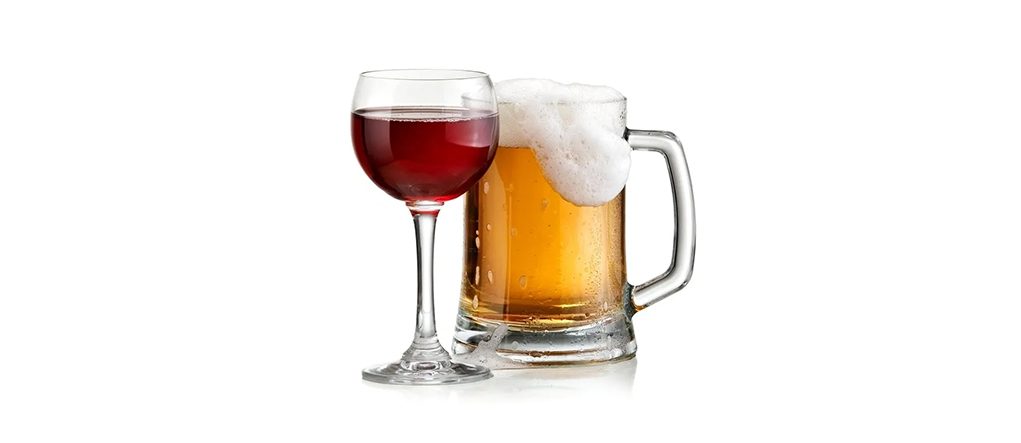Alcohol addiction is a pervasive and challenging issue affecting millions of individuals worldwide. Breaking free from this destructive cycle demands commitment, support, and a comprehensive approach to treatment. Quitting alcohol abruptly can be perilous, highlighting the significance of medical detox and inpatient treatment in the recovery process. In this blog post, we will explore the dangers of sudden alcohol cessation, the benefits of medical detox, and the advantages of seeking inpatient treatment on the road to sobriety.


Dangers of Sudden Stopping
Ceasing alcohol consumption abruptly, also known as going “cold turkey,” can have severe and potentially life-threatening consequences. Chronic alcohol abuse alters brain chemistry and function, leading to physical dependence. When an individual suddenly stops drinking, their brain struggles to adjust to the absence of alcohol, causing a range of withdrawal symptoms that can vary in intensity.
- Withdrawal Symptoms:Alcohol withdrawal symptoms may include anxiety, tremors, nausea, vomiting, sweating, increased heart rate, hallucinations, seizures, and even delirium tremens (DTs). DTs are severe and can be life-threatening, characterized by confusion, severe agitation, fever, and hallucinations.
- Health Risks:The abrupt cessation of alcohol can also lead to dangerous complications, including dehydration, electrolyte imbalances, and seizures. These health risks emphasize the need for a carefully managed withdrawal process.
- Relapse Risk:The intense discomfort of withdrawal often drives individuals back to alcohol as a way to alleviate the distressing symptoms. Sudden cessation may exacerbate cravings, making it difficult for someone to maintain their commitment to sobriety.
Benefits of Medical Detox
Medical detoxification, often the first step in alcohol addiction treatment, involves a supervised process that allows individuals to safely withdraw from alcohol under medical guidance. This approach significantly mitigates the risks associated with sudden stopping and sets a solid foundation for further treatment.
- Supervised Withdrawal:In a medical detox program, healthcare professionals closely monitor the individual’s vital signs and symptoms, adjusting the treatment as needed to ensure a safe and comfortable withdrawal process.
- Medication-Assisted Treatment (MAT):Medical detox may incorporate medications that help alleviate withdrawal symptoms and reduce cravings, promoting a smoother transition into recovery. These medications can mitigate the severity of withdrawal and enhance the likelihood of successful detoxification.
- Psychological Support:Medical detox often includes psychological support and counseling, which can help individuals address the emotional and mental aspects of their addiction. This holistic approach contributes to a more comprehensive recovery.
Benefits of Inpatient Treatment
Inpatient treatment, also known as residential treatment, involves residing in a specialized facility during the recovery process. This level of care provides a structured and supportive environment crucial for addressing the complex nature of alcohol addiction.
- 24/7 Supervision and Support:Inpatient treatment offers round-the-clock care, ensuring immediate assistance in case of emergencies, intense cravings, or emotional distress. This constant support helps individuals navigate the challenging early stages of recovery.
- Structured Routine:The structured daily schedule in an inpatient setting includes therapy sessions, group activities, educational workshops, and opportunities for self-reflection. This routine fosters discipline, accountability, and healthy habits essential for sustained sobriety.
- Isolation from Triggers:Being removed from the triggers and temptations of the outside world allows individuals to focus solely on their recovery. Inpatient treatment creates a protective environment where individuals can concentrate on healing without external distractions.
- Intensive Therapy and Counseling:Inpatient treatment offers intensive individual and group therapy sessions, providing a deeper exploration of the root causes of addiction and offering coping strategies to maintain long-term recovery. The continuous therapeutic support equips individuals with valuable skills for life after treatment.
Conclusion
Overcoming alcohol addiction is a challenging journey that requires careful planning, professional guidance, and a strong support system. The dangers of sudden alcohol cessation highlight the necessity of medical detox, which ensures a safe and gradual withdrawal process. Inpatient treatment complements this by providing a structured, supportive environment conducive to healing and long-term recovery. Embracing these crucial aspects of treatment significantly increases the chances of achieving lasting sobriety and rebuilding a fulfilling, healthy life. Remember, seeking help is a sign of strength, and recovery is possible with the right approach and determination.
Why Jintara may be the right Inpatient Rehab for you

Jintara Rehab is a specialized boutique rehab that accepts a maximum of only 10 private clients all over the age of 30-years old, every client having their own 70 square meter apartment with beautiful resort-like facilities and the highest staff ratio of any rehab in Thailand. Jintara is fully licensed by the the Thailand Ministry of Public Health and offers programs from 1-month to 3-months.
If you or someone you care about is considering treatment for substance abuse, we can help. Contact us on info@lannarehab.com or phone/WhatsApp us on +66-094-095-4142.

Author: Darren G Lockie
Founder and CEO of Lanna Healthcare.
Share this post:
Recent Posts









